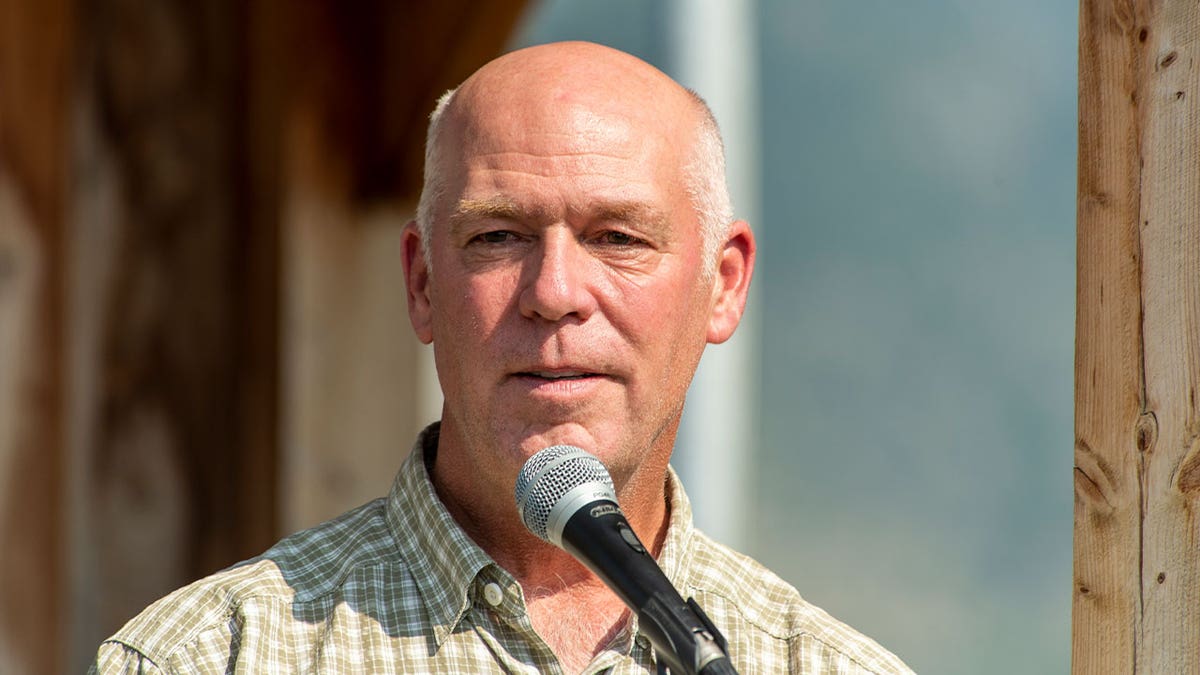Fox News' Shannon Bream on SCOTUS abortion pill case: 'Time is of the essence'
Fox News' Shannon Bream reacts to the Supreme Court's abortion pill ruling, discusses Sen. Dick Durbin calling for Chief Justice John Roberts to testify before a Senate committee as well as her new book.
- District Court Judge Mike Menahan has blocked a new Montana rule that would have limited Medicaid-covered abortion procedures to only those that medically needed it.
- Under the rule, Montana doctors were required to provide prior documentation proving why a patient medically needed an abortion before Medicaid would cover the procedure.
- Health care providers argued that the rule could eliminate abortion access for most Medicaid patients in Montana.
A judge in Montana temporarily blocked a new rule Monday that would have required physicians in the state to provide prior documentation showing that an abortion is medically necessary before the state’s Medicaid program will authorize payment for the procedure.
District Court Judge Mike Menahan wrote that his order "will serve the public interest by ensuring that Medicaid-eligible Montanans continue to have access to constitutionally protected abortions and safe, effective medical care."
All three of the state’s abortion providers sued in District Court in Helena on Friday to challenge the rule they argue will "effectively eliminate abortion access for most Medicaid patients in the state."
MAINE BILL EXPANDING ABORTION ACCESS GETS ENOUGH CO-SPONSORS TO ENSURE PASSAGE
"It shouldn’t matter what zip code you live in, how much money you make, or what insurance you use—everyone deserves access to the full range of reproductive health care services available in Montana," Planned Parenthood of Montana said Monday in a joint statement.
The abortion providers, along with the ACLU of Montana and the Center for Reproductive Rights, argued that the rule, which was set to take effect May 8, violates the right to privacy and equal protection under the Montana Constitution. A hearing on their request for a preliminary injunction is scheduled for May 12. "We stand by our rule to protect the integrity of Montana’s Medicaid program and look forward to defending it in court," Charlie Brereton, director of the Montana Department of Public Health and Human Services, said after the rule was challenged.

Montana Republican Governor Greg Gianforte speaks on July 24, 2021, in Emigrant, Montana. Montana’s Legislature has passed an abortion-restricting bill last week that will go to Republican Gov. Greg Gianforte for his signature. (William Campbell/Getty Images)
Under the rule, in order for Medicaid to pay for abortions, physicians must provide information about the number of pregnancies and children the woman has, the results of a physical exam, pregnancy test, gestational estimate as well as documentation of the reason for the procedure and a signed consent form. The prior authorization process is supposed to be completed within three working days.
Montana’s Legislature also passed a bill last week to put similar requirements into state law starting on July 1. That measure will go to Republican Gov. Greg Gianforte for his signature.
The health department said a review of abortions over the past decade led it to believe it was paying for elective abortions because the agency did not receive enough documentation from providers to prove the procedures were medically necessary.
VERMONT LEGISLATURE PASSES LEGAL PROTECTIONS FOR ABORTION PILLS, TRANS PROCEDURES
Medicaid regulations say federal money can only be used for abortion care in cases of rape, incest or a threat to the life of the mother. But under a 1995 court ruling, Montana Medicaid must also cover the cost of abortions that are considered medically necessary.
Montana Medicaid will only cover abortions provided by physicians — the rule and the legislation state — to meet federal Medicaid guidelines.
Physician assistants can legally provide abortion care in Montana and the Montana Supreme Court heard arguments in December over whether nurse practitioners can provide abortion care if they are properly trained. One nurse practitioner in Montana has been allowed to perform abortions since 2018 under a ruling in that case.
CLICK HERE TO GET THE FOX NEWS APP
The health department argued a physical exam and documentation ensures the safety of the patient, can rule out ectopic pregnancy and ensure the gestational age is within Food and Drug Administration guidelines for the type of abortion being performed.
The state does acknowledge that in the case of rare, severe fetal abnormalities that would be incompatible with life upon delivery, the situation may not meet the definition of medical necessity and that Medicaid wouldn’t provide coverage.
Planned Parenthood has clinics in Billings, Great Falls and Helena. Other providers have in-person clinics in Missoula and Whitefish.






















